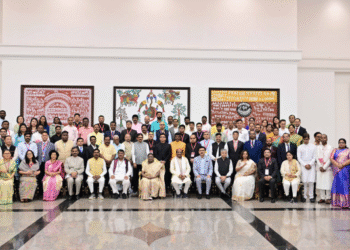Ukrainian President Volodymyr Zelensky has voiced support for U.S. President Donald Trump’s decision to impose tariffs on countries continuing trade with Russia — including India — amid Moscow’s ongoing war in Ukraine.
In an interview with ABC News, Zelensky was asked whether Western sanctions on Russia were proving ineffective, given the recent Modi–Putin meeting at the Shanghai Cooperation Organisation (SCO) Summit in China.
“I think the idea to put tariffs on the country continuing to make deals with Russia is the right idea,” Zelensky said, backing the latest U.S. move.
Trump’s Administration Signals Harsher Measures
Zelensky’s comments come as the Trump administration is preparing to expand sanctions against Moscow after recent Russian missile strikes on Ukrainian cities. Trump, speaking on Sunday, said he is “ready to expand sanctions against Russia.”
Kevin Hassett, director of the National Economic Council, specifically mentioned India as an example of a country that could face economic consequences:
“We are responsible for ensuring that sanctions get enforced… for example, what India has been doing by buying Russian oil — we’re ready to respond economically,” Hassett said.
India’s Diplomatic Push for Peace
Despite criticism, New Delhi has in recent weeks intensified its diplomatic outreach to seek a resolution to the war.
-
Prime Minister Narendra Modi spoke with Zelensky twice last month, reiterating India’s call for a “peaceful and early resolution” to the conflict.
-
Modi also engaged with top European leaders including Ursula von der Leyen, Antonio Costa, and Emmanuel Macron to discuss pathways to peace.
-
External Affairs Minister S. Jaishankar held talks with Ukrainian Foreign Minister Andrii Sybiha, assuring India’s commitment to an “enduring peace.”
High-Stakes Geopolitics
India’s balancing act — maintaining strong ties with both Russia and the West while calling for peace — faces renewed scrutiny as Washington steps up pressure. Analysts say any tariffs or secondary sanctions could have major economic implications, especially for India’s energy imports and export sectors.





























